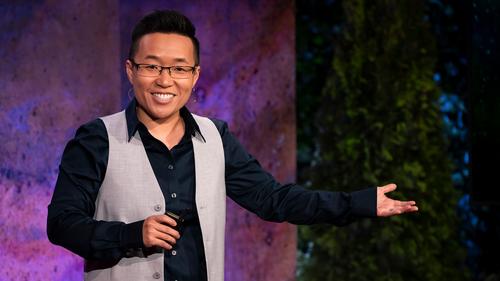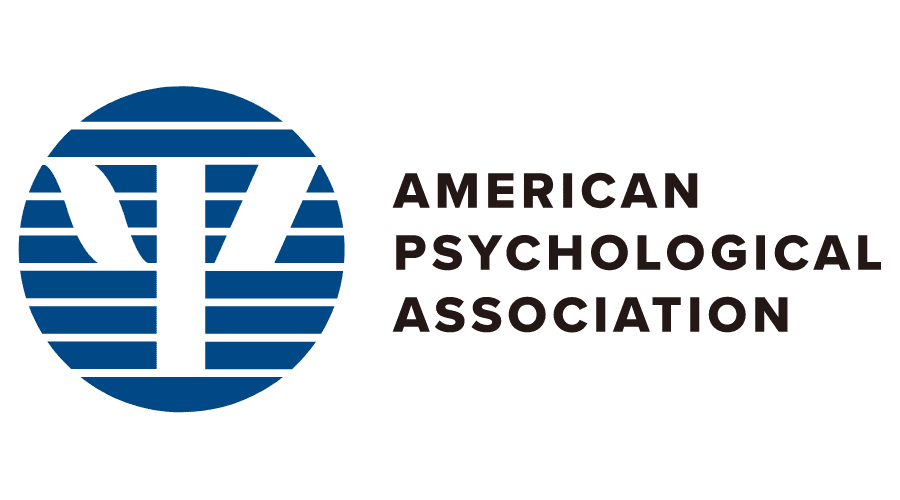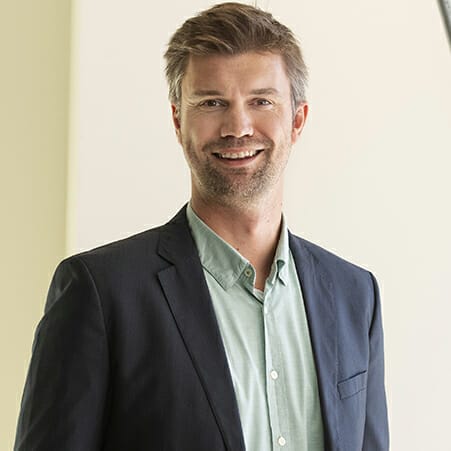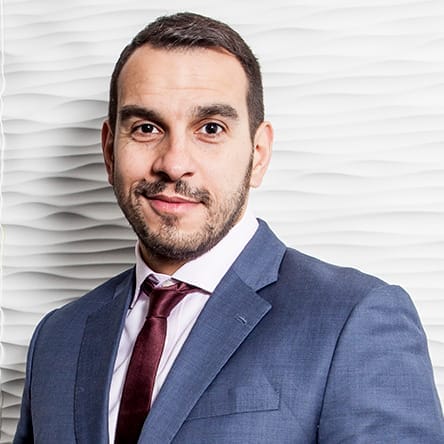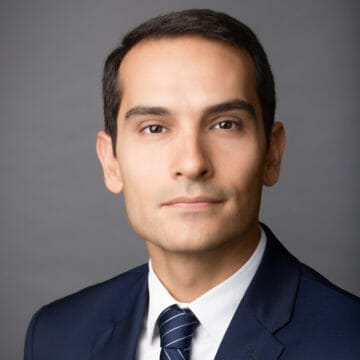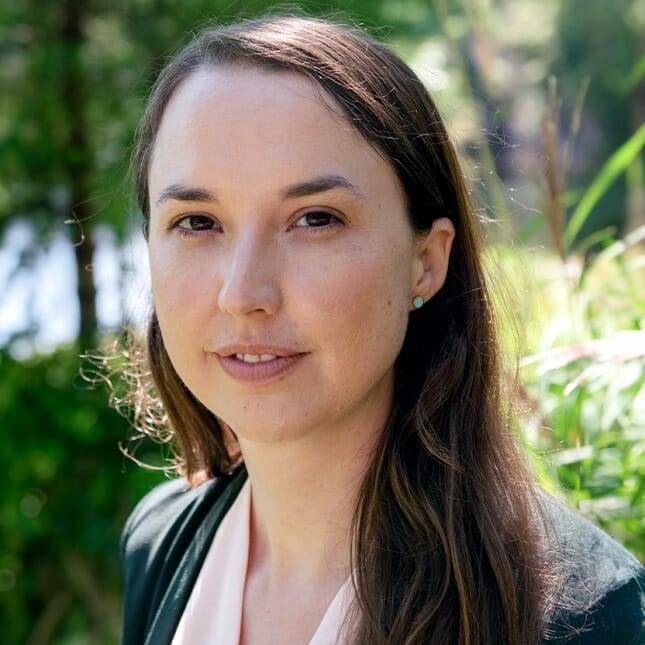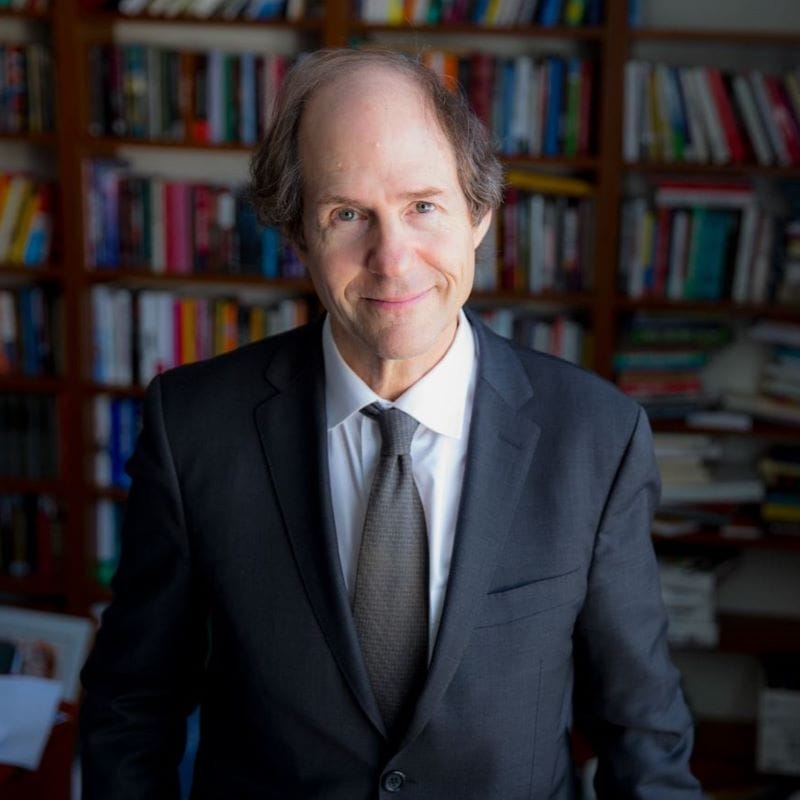Videos
Learn More About Jiaying Zhao
As a global society, we’re facing more threats to well-being than ever – to ourselves and the planet. While practical strategies for addressing climate change, scarcity and poverty exist, facing these big issues can feel overwhelming and demoralizing. How can we help people imagine a more sustainable future they can easily help create?
An expert on human behavior and the thought processes behind it, University of British Columbia (UBC) professor Jiaying Zhao, Ph.D., (“JA-ying JOW”) is one of the world’s foremost authorities on leveraging behavior change to free up mental resources so we can promote environmental and financial sustainability.
“My vision is to create a world where we won’t have environmental crises or poverty – a goal that applies to anyone who lives, breathes and spends money,” explains Zhao, UBC Behavioral Sustainability Lab principal investigator. “By understanding the mindset behind behaviors, we can find better solutions to the energy crisis and financial pressures so we can power humanity forward.”
With an upbeat and engaging style – on full display in her “happy climate” TED Talk that has more than a million views – Zhao helps leaders from a variety of sectors create and enact strategies and policies that allow individuals to mentally reframe big, sometimes intimidating issues in more accessible, participatory ways.
The Secret Ingredients to Encouraging Behavior Change
To elicit behavior change, Zhao’s frameworks show how to alter decision friction – the mental barriers that often get in the way of taking concrete steps. Her research-backed insights into how to nudge constructive behavior change are applicable in a wide variety of industries and can be adopted by governments, businesses and non-profits alike.
“We can make things easier for ourselves and others by understanding how friction – action friction, social friction and decision friction – influences our thought processes,” explains Zhao, an associate professor at UBC in both the Department of Psychology and the Institute for Resources, Environment and Sustainability (IRES). “We can use nudge techniques to encourage beneficial behaviors by decreasing friction or to discourage harmful behaviors by increasing it.”
Find the Joy in Climate Action
Bringing together her training as a cognitive psychologist and an interest in waste reduction and fighting climate change, Zhao has developed techniques that not only encourage positive climate action but even make it uplifting. She’s teamed up with UBC colleague and happiness researcher Elizabeth Dunn to create the popular, highly interactive Happy Climate Workshop. The pair are also collaborating on an upcoming book, “The Joy of Climate Change.”
Working with both strategy and product development teams as well as NASA, NOAA, and the US and Canadian Forest Services to build pathways to net zero and zero waste, her deeply researched methods simultaneously protect the planet while enhancing employee satisfaction, overall well-being and reducing burnout.
From initiatives that prompt action by helping people visualize an encouraging environmental future to reward programs that provide positive reinforcement for undertaking constructive activities, Zhao helps organizations create fun, inspirational campaigns that prompt enthusiastic participation.
Psychological Strategies for Boosting Financial Well-Being
Often, talk of sustainability is naturally linked to climate change, but Zhao’s focus extends to financial sustainability as well. In her research, she outlines the heavy psychological impacts of scarcity – the feeling of not having enough money, time, sleep, or friends – and shows the cognitive toll they take by overloading our natural human limits of attention, memory and motivation.
A pioneer in designing groundbreaking interventions, Zhao offers organizational leaders – especially those in the banking industry and housing sector – strategies for understanding these heavy psychological burdens and empowering those facing scarcity by reducing the cognitive toll.
“When people are experiencing scarcity, they often neglect focusing on the long term to concentrate on immediate needs,” explains Zhao, who advises national and local Canadian governments on poverty reduction programs. “By helping to alleviate burdens on the mind, we can help individuals access more mental bandwidth to reclaim agency over long-term well-being.”
Through presentations, one-on-one and small group advisory sessions, and interactive workshops, Jiaying Zhao provides key insights into the science of behavior change. She sheds light on what hasn’t worked in the past and offers practical advice for how to elicit tangible actions to boost sustainability initiatives guided by research-backed behavioral and cognitive principles.
“The public are shifting their opinions and perceptions in the sustainability domain,” she concludes. “Businesses and governments can leverage this shift to benefit society, the planet and their organizations – all at the same time.”
###
Jiaying Zhao, Ph.D. (“JZ”) is a leading behavioral scientist tackling critical social and environmental challenges with behavioral solutions to promote sustainability. She is currently an associate professor and Canada Research Chair at the University of British Columbia in the Department of Psychology and the Institute for Resources, Environment and Sustainability. Zhao is also a faculty affiliate with the Center for Effective Global Action at University of California, Berkeley, and an invited researcher at J-PAL at Massachusetts Institute of Technology.
Zhao has advised dozens of governments, NGOs, and businesses, including the UN Sustainable Development Solutions Network, The US Social and Behavioral Sciences Team, The UK Commonwealth Secretariat, and the Privy Council Office of Canada. She has testified as an expert witness on national policies in the Canadian Parliament. On a weekly basis, she meets with senators and policymakers at the municipal, provincial/state, and federal levels to inform and improve public policy on climate change and poverty reduction based on insights from her work.
Zhao’s research has been published in top journals, including Science, Nature Climate Change, and Proceedings of the National Academy of Sciences. She is a 2020 recipient of the Killam Research Prize, which recognizes Canada’s most inspiring scholars and thought leaders.
An immigrant from Hangzhou, China, Zhao ventured to Dublin, Ireland, to pursue her B.A. and M.A. in cognitive science and completed her Ph.D. in cognitive psychology at Princeton University.
Jiaying Zhao is available to advise your organization via virtual and in-person consulting meetings, interactive workshops and customized keynotes through the exclusive representation of Stern Speakers & Advisors, a division of Stern Strategy Group®.
Find the Joy in Climate Action
Climate change continues to be an increasingly urgent threat to the well-being of the planet and humans alike. How can we better encourage individuals and organizations to participate in the fight against climate change that often feels demoralizing and hopeless? Find the joy in climate action, says Jiaying Zhao, Ph.D., behavioral scientist and University of British Columbia Behavioral Sustainability Lab principal investigator. Drawing from her popular “Happy Climate” workshop and upcoming book “The Joy of Climate Change” – co-authored with happiness researcher Elizabeth Dunn – Zhao outlines positive ways in which we can approach high-impact sustainability actions that can enhance well-being while protecting the planet. Audiences will leave with immediately applicable frameworks and tangible strategies to gain more confidence and competence for optimistically facing the challenges of climate change.
The Secret Ingredients to Encouraging Behavior Change
Many understand that important societal issues such as climate change and poverty require action, but the challenge is getting decision makers, organizations, and governments to take concrete steps to help alleviate these issues. How can business, government, and non-profit leaders encourage action effectively and durably? According to behavioral scientist Jiaying Zhao, Ph.D., actions that help address some the world’s most pressing issues can be increased by understanding the thought processes that lead to behavior change. In this revealing presentation, she’ll provide research-backed insights into how to nudge constructive behavior change by altering decision friction. Audiences will leave with practical and impactful steps for leveraging nudge techniques that will promote beneficial behaviors while discouraging harmful ones.
Psychological Strategies for Boosting Financial Well-Being
Everyone struggles with scarcity – the feeling of not having enough money, time, sleep, or friends. Scarcity drains brain power and saps productivity. What steps can be taken at the individual and community levels to help reduce the burdens – and cycle – of scarcity? According to behavioral scientist Jiaying Zhao, Ph.D., the first step is to address the cognitive tax of scarcity – the heavy psychological burden that it places on the human mind. The second step is to find ways to cut this cognitive tax. In this eye-opening presentation, she’ll draw on her years of on-the-ground research to explain how the stresses of scarcity overload our natural human limits of attention, memory and motivation. These stresses combine to suck up mental bandwidth, perpetuating the condition of scarcity. Audiences will leave with an understanding of how individuals experiencing scarcity can be empowered through both psychological strategies and better support from services including the banking industry and the housing sector.
As the urgency to address climate change continues to rise and many agree that action is necessary, the key question of what that action actually looks like remains. Shedding light on behavior change strategies for addressing the climate crisis is behavioral scientist and University of British Columbia professor Jiaying Zhao, Ph.D. She offers individuals and organizations practical behavioral solutions for enacting climate change mitigation strategies as well as interventions for combatting the psychological impacts of scarcity. Zhao is available to discuss any or all of the following topics during keynote presentations and consultations plus small group and one-on-one advisory meetings. Each program can be customized to meet the needs and goals of your organization with the added option of meeting virtually or in-person.
- Finding the Joy in Climate Action
- The Secret Ingredients to Encouraging Behavior Change
- Psychological Strategies for Boosting Financial Well-Being
The Joy of Climate Change
As climate change continues to become a greater concern by the day, many are feeling anxiety about the future and what they can do to help. In this highly interactive workshop, University of British Columbia psychology professor Jiaying Zhao helps attendees identify specific, feasible changes they can make in their own lives to effectively address climate change while increasing their individual happiness. Although discussions of climate change often generate anxiety or guilt, this upbeat session will highlight how re-thinking the way we approach food, work, and travel can enhance well-being. After getting some shared knowledge on the table, Zhao invites attendees to work in small teams, serving as one another’s “carbon consultants” to identify the most feasible, impactful and emotionally rewarding changes each can make to support both sustainability and individual happiness.


